Sleep Hygiene and Nutrition for Better Sleep
Who doesn’t want better sleep? Do you wake during the night and find it difficult to get back to sleep? Do you feel exhausted just after getting up? Or do you loose sleep about not getting enough sleep? Whatever the issue, insomnia is never fun! Unfortunately, our modern age has fostered a nation screen-scrollers and social media surfers, and this has made switching off before bed a real problem. However, the fact remains that sleep is vital for our body’s overall health and recovery. Indeed, getting restful and rejuvenating sleep not only helps our productivity levels, but – more importantly – it enables our body to work at its optimum. With that in mind, here’s how you can use sleep hygiene and nutrition for better sleep to help you get more restorative z’s.
Why Is Sleep So Important?
Sleep is instrumental to our overall physical and emotional wellbeing; it’s fundamental for brain development, problem solving, decision-making, stress resilience and our capacity for empathy. Sleep deprivation on the other hand, can lead to weight gain, affect our hormones, and make our immune system considerably more vulnerable to infections. Currently, 40% of American adults obtain less than 7 hours of sleep a night, and 30% of UK citizens are said to feel sleep deprived. Generally speaking, you are advised to sleep for 7-9 hours each night. However, sleep patterns can often be disrupted if you have young children or work odd shift night patterns.
How Does Sleep Affects Our Metabolism?
Recent studies have found that inadequate sleep is associated with a rise in cancer, diabetes and cardiovascular disease. Schools of thought have even discovered a correlation between sleep deprivation and obesity. Indeed, getting enough sleep is required to maintain a healthy weight, as it supports the balance of our hunger hormones – Ghrelin (appetite suppression) and Leptin (satiety factor), which help keep our appetite under control. Scientific studies have concluded that when we are sleep deprived, our Ghrelin levels can increase and our Leptin levels decrease. Worse still, without adequate sleep, our body lacks optimal insulin secretion, which controls our glucose metabolism. As a result, our hunger can become erratic and insatiable.
Sleep And Stress
As you can probably guess, stress and sleep are inextricably linked. Sleep deprivation leads to a vicious cycle of excess stress hormones, which reduce sleep-inducing melatonin. Your HPA Axis (Hypothalamic Pituitary Adrenal) is key to helping regulate our circadian rhythm in order to get quality sleep. When we are over stimulated, have unresolved emotional issues, and feel over burdened with responsibilities, this can cause a huge release of the stress hormone cortisol into our system and exacerbate troubles sleeping. Ironically, we can even get stressed about not getting enough sleep, which can intensify feelings of anxiety and depression.
If you are suffering from severe stress and sleep deprivation, and feel it is affecting your health, then I would suggest having your hormones assessed, which I can easily do for you following a clinical consultation & case review. Once I have a more accurate picture of what is going on, I can design a bespoke nutritional programme to bring your hormones back into balance.
Sleep Hygiene to Support Relaxation
Create Bedroom Zen
- Your bedroom should become your sleep sanctuary – a comforting place where you can switch-off from the stresses of modern-day life.
- Create a quiet and dark environment; turn off all the lights including hall lights. Make sure any streetlight is blocked. Invest in a good quality mattress, which allows your body to comfortably sink into it without any aches and pains. When purchasing a mattress, try and find one that allows you to test it for 30 days.
- Choose clean cosy bedding. Your bed should be a personal and inviting place. Help make it more attractive by having fresh sheets, duvets, quilts and cushions that lure you into bed.
- Keep work out of the bedroom. Store your laptop and work phone elsewhere. Instead, make your room a positive place filled with personal photos and sentimental trinkets.
- Spray your pillow with soothing scents such as lavender and neroli to promote relaxation.
Have a consistent, unwinding sleep routine
- Go to sleep before 11.00pm to get optimal deep non-REM sleep
- Ensure you go to bed and wake up at regular times, as this will help with your body’s internal clock
- Leave adequate time to unwind to ease the transition from day to night
- Take a long, soothing soak in the tub with relaxing essential oils
- Avoid overstimulating TV and films and get rid of bright LED screens at least two hours before bed (try a red filter) or choose candles and dimmed lights.
- Read a book, listen to calming music, or meditate in bed before turning off the light
- Give yourself a massage or ask someone else to
- Spend quality time with loved ones and try to resolve any emotional issues before sleeping
Nutrition Hacks for Better Sleep
Avoid Caffeine, Alcohol. These interfere with sleep
Do not consume caffeine (coffee, green tea, tea) up to six hours before going to sleep. Caffeine can remain in your system for 12 hours and some people find it more difficult than others to process. Less caffeine means better sleep and hopefully the need for less caffeine. The same goes for alcohol; and although it may bring on sleep, it can actually act as a stimulant. As such, try avoiding alcohol consumption at least 3 hours before going to bed, and reduce your intake throughout the week.
Gut Health – the Root of All Health
Nutrition for better sleep starts with the Gut. There is a constant dialogue between your gut bacteria and brain via the vagus nerve. You need healthy levels of microbes to maintain adequate levels of neurotransmitters to help you sleep. Tryptophan – an amino acid found in protein sources – is a precursor for both serotonin and melatonin production, which are two main neurotransmitters to aid sleep. As such, tryptophan is valuable for improving both the quantity and quality of sleep, but this depends on your digestive system’s ability to break down and utilise amino acids effectively. Serotonin is a key neurotransmitter for sleep. Did you know that 80-90% of serotonin is produced inside the gut? Interestingly, it is known as the ‘happy hormone’ and is often low in people who suffer from depression and insomnia.
Melatonin is the neurotransmitter that is regulated by the pineal gland by the changing levels of light and dark. As people age, their body’s produce less melatonin, which can exacerbate difficulties sleeping. Drinking tart cherry juice before bedtime has been shown to aid sleep due to the fruit’s high melatonin content.
Gut Health Tips
Take a daily probiotic to help produce and regulate sleep induced hormones and neurotransmitters.
Consume tryptophan rich foods – turkey, cod, oats, bananas, watercress, spirulina, almonds, pumpkin and sunflower seeds.
Feed the good bacteria with Prebiotic rich food (onions, artichokes, asparagus, chicory root, fenugreek, fennel, avocados)
Exercise regularly, as this can help diversify your gut bacteria
Run an allergy/intolerance or stool test through one of our expert Nutritionists to see if you have any serious digestive issues that might be impacting your sleep.
Make an effort with Magnesium
Having healthy levels of magnesium is vital for successful sleep, since it is responsible for hundreds of reactions in your body and is key for relaxation. Indeed it aids in healthy muscle function and plays an important role in the function of GABA receptors – a calming neurotransmitter that helps calm down and switch off. Signs that you are deficient in magnesium include sleep deficiency, and regular cramps and twitches.
Consume magnesium rich foods such as dark chocolate, leafy dark greens, and pumpkin seeds, salmon and avocadoes Enjoy magnesium chloride flakes or Epsom salts in your bath Try a transdermal magnesium body spray Talk to one of our nutritionists to design an individualised supplement programme
Balance that Blood Sugar
As aforementioned, sleep is crucial for maintaining blood sugar levels, cooling down volatile stress hormone levels, and keeping weight off. Blood sugar and sleep are very interrelated. To aid this important connection, it is important to ensure that you eat nutrient-dense food consistently throughout the day: 3 meals and 2 snacks. Satiation is also key, so take care to provide a good ratio of fats/carbohydrates/proteins on your plate. In addition to this, ensure that you have a balanced, protein-rich bedtime snack and/or calming drink before hitting the pillow, as this can be great way to send you to sleep.
Sleep Inducing Snacks And Drinks
Banana smoothie (1 banana and ½ cup coconut milk) Handful of pumpkin seeds Apple slices with nut butter Herbal Teas: camomile, oat straw, lemon balm Warm glass of almond milk with a pinch of salt and cinnamon, tsp honey


